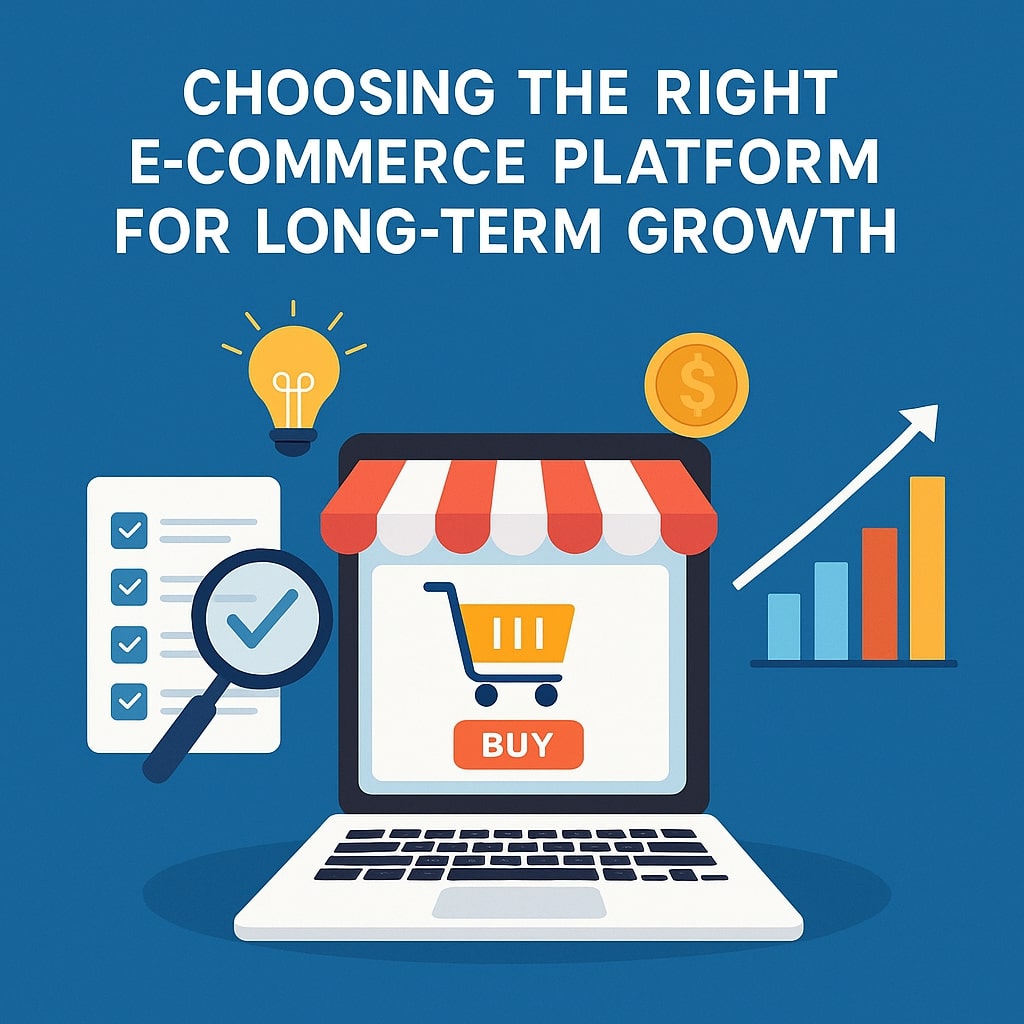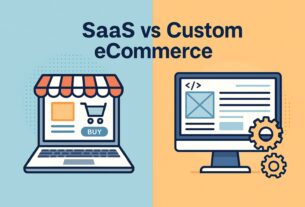Starting an online business today isn’t just about having a good product. It’s also about having the right platform to sell that product. For many new business owners, choosing an e-commerce platform can feel overwhelming. From Shopify to Magento to custom-built solutions, there are many routes available.
The decision holds weight because the platform you pick can affect everything from how quickly your site loads to how well it handles sales spikes. While the perfect choice depends on individual needs, there are several common points every business owner should weigh carefully.
One thing worth reading about is the various Factors Consider E-Commerce Platform shared by experts.
Core Considerations When Choosing an E-Commerce Platform
When deciding on an e-commerce platform, some key factors stand out:
-
Ease of Use: Especially for small businesses or teams without in-house developers, it’s vital to have a platform that doesn’t require constant technical support.
-
Scalability: Your online shop might start small, but it should have room to grow. That means choosing a solution that allows for adding new products, handling more traffic, and expanding into new markets.
-
Payment Methods: The platform should support multiple payment options, including credit cards, digital wallets, and region-specific payment systems.
-
Security: Protecting customer data is non-negotiable. Platforms should comply with security standards like SSL and PCI-DSS.
-
Mobile Friendliness: More people shop using their phones than ever before. Your website needs to function well across all devices.
Approximately 100 words from the first hyperlink placement. Moving to the next one now.
One particular platform often mentioned in these discussions is Magento. Whether you’re a mid-size business or a larger enterprise, there are many reasons businesses prefer this option. If you want a quick overview, check out Reasons Choose Magento Platform for some practical insights.
Self-Hosted vs. SaaS Platforms
When narrowing down your platform choice, you’ll come across two main categories: self-hosted and SaaS (Software as a Service).
-
Self-Hosted Platforms (like Magento) give you control over hosting, security settings, and customisation. You need a tech team or agency to handle updates and maintenance.
-
SaaS Platforms (like Shopify or BigCommerce) handle hosting and maintenance for you. You pay a monthly fee and get access to various pre-built tools.
Each option comes with pros and cons. Businesses with unique product configurations or complex customer journeys may find self-hosted platforms more suitable. Others who value simplicity might lean towards SaaS models.
Cost Considerations
Budget plays a big role in this decision. Costs can include:
-
Platform subscription fees
-
Hosting and server costs
-
Payment gateway charges
-
Custom design and development
-
Ongoing maintenance and updates
It’s not just about initial setup. Consider how your costs will scale as your business grows. For example, hosting costs may rise as traffic increases.
Approximately 100 words from the last hyperlink placement. Moving on to the third link now.
Of course, launching an e-commerce store isn’t just about picking the right platform. Success depends on how you measure and adjust your strategy over time. For guidance on this, see 12 eCommerce Success Metrics which breaks down crucial performance indicators worth tracking.
Common Mistakes When Selecting a Platform
Many business owners make the following errors when choosing their platform:
-
Ignoring Future Growth Needs: Picking a platform that works for now but doesn’t support growth later.
-
Choosing Based on Price Alone: Cheaper isn’t always better. Reliability and support matter too.
-
Overcomplicating Features: Opting for a system with too many unused tools can confuse both the team and customers.
-
Skipping Customisation Options: It’s important your shop can reflect your brand’s look and feel.
Avoiding these mistakes can save a lot of time and money down the road.
Customisation and Integration
The ability to integrate with other business tools is another key consideration. Your e-commerce platform should work smoothly with:
-
CRM systems
-
Email marketing tools
-
Inventory management systems
-
Payment gateways
-
Analytics software
Make sure to check what integrations are available before finalising your platform decision.
SEO and Marketing Support
An e-commerce platform should offer built-in SEO tools or support easy integration with third-party apps. Important features include:
-
Meta tag editing
-
URL structure control
-
Mobile-responsive design
-
Fast page speed
Platforms that rank higher in search engine results tend to offer greater flexibility with these features.
Support and Community
When issues come up — and they will — having reliable customer support is essential. Some platforms offer 24/7 live chat, while others rely on ticket-based systems. It’s also worth checking if there’s a large user community you can turn to for help.
Conclusion
Selecting the right e-commerce platform involves balancing cost, customisation, security, and future growth potential. By carefully considering these factors and avoiding common mistakes, you’ll be in a better position to build an online store that not only runs smoothly today but keeps serving your business as it grows.
Author: Pratik Patel
WEDOWEBAPPS
is
a
leading
USA-based
software
development
company
delivering
end-to-end
digital
solutions
for
enterprises
and
startups.



